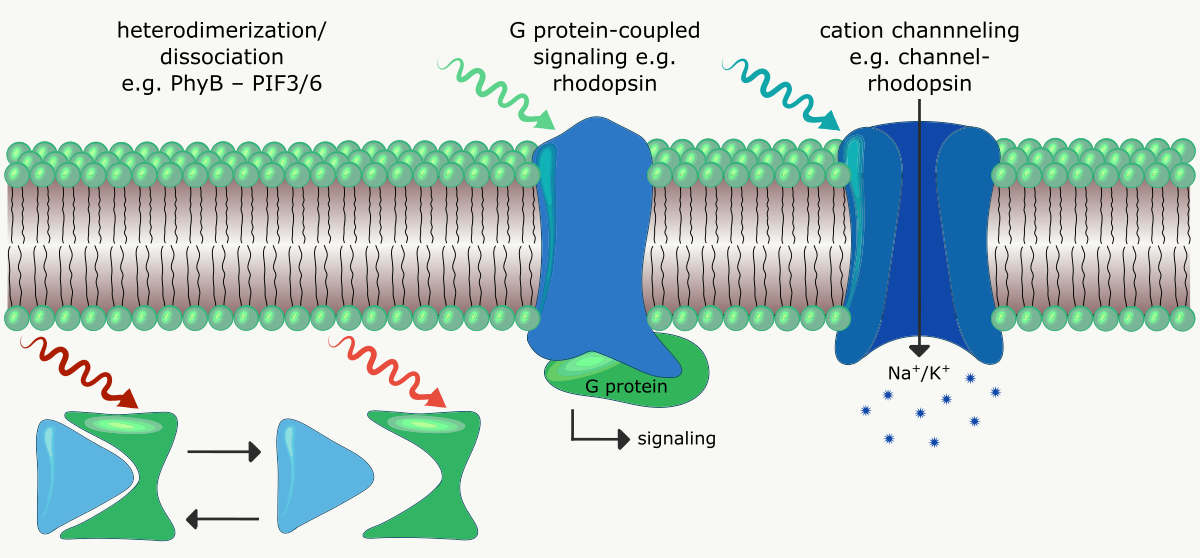What is Optogenetics?
Optogenetics is a biological technology for controlling cellular activity with light. More specifically, the technology is a combination of methods from optics and genetics, with the aim of switching on (gain-of-function) or off (loss-of-function) certain functional events in specific cells or living tissues. For this purpose, foreign genes are introduced via viral vectors into the target cells that lead to the expression of light-sensitive proteins. Upon illumination, these optogenetic proteins undergo a conformational change that subsequently triggers a cellular response.
Some photoactivatable proteins contain an intrinsic signaling component that can be triggered by light. These ‘first generation’ optogenetic proteins, such as channelrhodopsin, are hardwired to a certain signal transduction pathway. More recently developed optogenetic tools overcome this limitation by artificially fusing light-responsive proteins or their interaction partners to different target signaling output domains. This method has huge advantages and gives rise to the precise temporal and spatial control of virtually any cellular signaling pathway by a simple flash of light.

